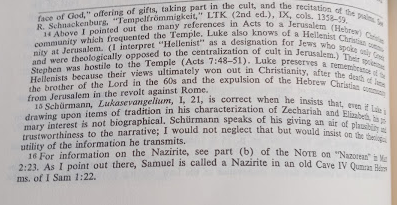Gentiles in the Roman Empire had heard the expression "son of god." In particular, that honorific had been applied to the first emperor, Augustus. The title was also applied, it is reported, to tably Tiberius, who was emperor during Jesus' earthly ministry, Nero, who persecuted Christians, and Domitian, who may have persecuted Christians. All three emperors commanded the empire in the First Century, when the idea of Jesus as "son of God" was catching on.
The idea of Jesus as Messiah (=Christ) was meaningful to Jews, but Gentiles were not familiar with this tradition. But they were familiar with the concept of "son of God." So the apostles used that concept as a means of reaching Gentiles. And, "son of God" also had Semitic meanings, two of which are "servant of God" and "angel." It is curious that the synoptic gospels, in particular, equate Jesus' admission to being the/a "son of God" with blasphemy. Blasphemy would have been more arguable had he admitted to being "God the Son," a Trinitarian notion that emerged in the church over time.
More on this subject found in shorthand notes MDM below.
WikiPedia informs us:
In Greek mythology, Heracles (son of Zeus) and many other figures were considered to be sons of gods through union with mortal women. From around 360 BC onwards Alexander the Great may have implied he was a demigod by using the title "Son of Ammon–Zeus."
In 42 BC, Julius Caesar was formally deified as "the divine Julius" (divus Iulius) after his assassination. His adopted son, Octavian (better known as Augustus, a title given to him 15 years later, in 27 BC) thus became known as divi Iuli filius (son of the divine Julius) or simply divi filius (son of the god). As a daring and unprecedented move, Augustus used this title to advance his political position in the Second Triumvirate, finally overcoming all rivals for power within the Roman state.
The word applied to Julius Caesar as deified was divus, not the distinct word deus. Thus Augustus called himself Divi filius, and not Dei filius [divi implied a lesser god; dei probably implied Zeus/Jupiter, the chief god]. The line between been god and god-like was at times less than clear to the population at large, and Augustus seems to have been aware of the necessity of keeping the ambiguity. As a purely semantic mechanism, and to maintain ambiguity, the court of Augustus sustained the concept that any worship given to an emperor was paid to the "position of emperor" rather than the person of the emperor. However, the subtle semantic distinction was lost outside Rome, where Augustus began to be worshiped as a deity. The inscription DF thus came to be used for Augustus, at times unclear which meaning was intended. The assumption of the title Divi filius by Augustus meshed with a larger campaign by him to exercise the power of his image. Official portraits of Augustus made even towards the end of his life continued to portray him as a handsome youth, implying that miraculously, he never aged. Given that few people had ever seen the emperor, these images sent a distinct message.
A denarius minted circa 18 BC. Obverse: CAESAR AVGVSTVS; reverse: DIVVS IVLIV(S) (God's son).
Above: 2 pages from Brown, BoM
Above: Brown BoM 268. Footnote 14. Important point.



























No comments:
Post a Comment